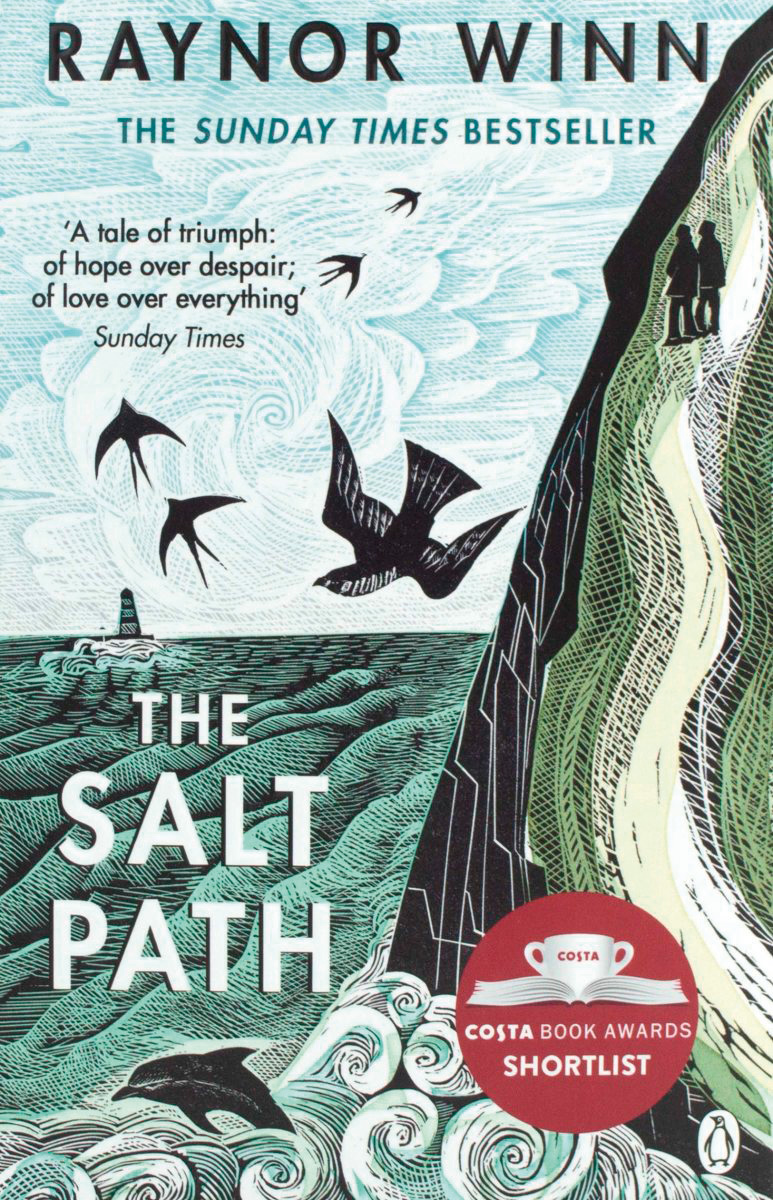We don’t often review best sellers in ACNR, still less travel books. But ‘The Salt Path’ is a bestselling travel book with a neurological twist. It is written by a woman married to a person recently diagnosed with Corticobasal degeneration. And for good measure, they have just contended with legal and financial catastrophe too.
It is a medical book in the sense of showing the limitations of our profession. Perhaps the best that can be said for Medicine here, is that it comes out of the story better than the Law!
A point that’s highly relevant to medical practice, however, is a recurring theme of The Salt Path: when you hit rock bottom, the only way is up. That’s if you allow yourself to try, and are willing to risk that you might die laughing in the effort…What was that they said about the best medicine?
While Cornwall comes out better than either Medicine or the Law, the hero of the piece is an abstraction of the indomitable human spirit. It inhabits all of us from time to time, except the most unlucky. It certainly inhabits the travellers on ‘The Salt Path’ as they journey on; and one perceives that, having journeyed, this spirit will be all the stronger in the event of future travails.
I must say that Raynor Winn (et al!) provide a compelling (if not scientifically irrefutable) case for the benefits of positive action and of physical therapy, even for the ghastliest of neurodegenerative conditions. Of course, this is something which resonates with data presented more formally by our colleagues in Rehabilitation Science of late; that includes a paper in a very recent edition of the ‘other’ Clinical Neuroscience journal which comes through the door of many UK neurologists.
The Salt Path is a ‘feel good’ read for clinicians in Neuroscience; there can be life, even when there is no cure. I think its positivity might also benefit some of our patients, perhaps many of them.
